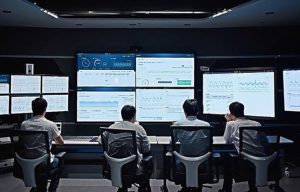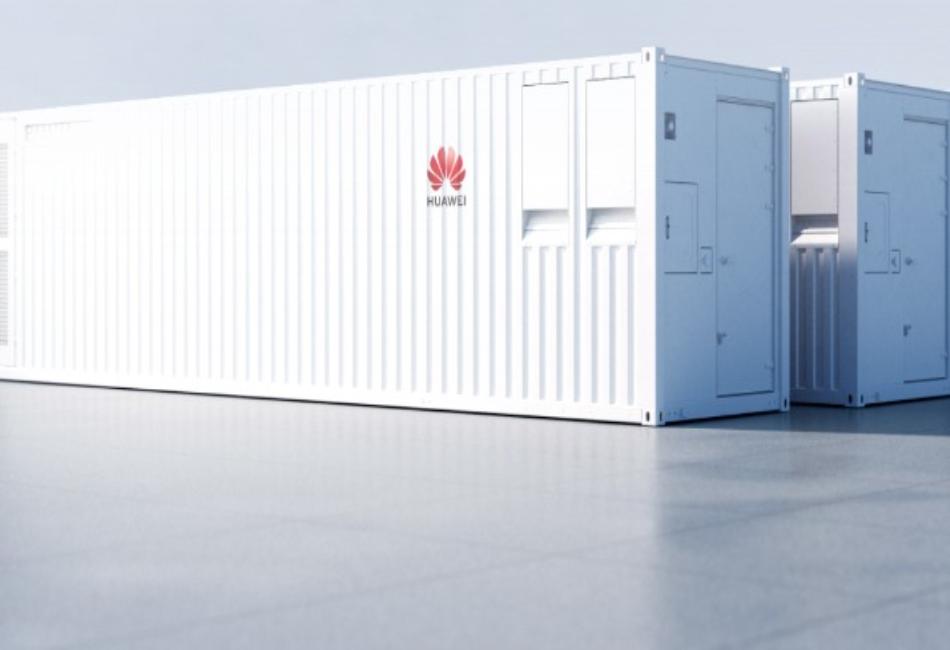Effective power management in data centers is becoming more crucial due to the increasing demands for data processing and storage. Data centers are power-hungry entities, and as technology advances, so does the necessity for smarter, more efficient power management strategies. This blog delves into the latest innovations in power management for data centers, exploring the impact of AI and machine learning, the integration of renewable energy sources, and advanced cooling techniques. By understanding these emerging trends and technologies, data center operators can enhance their facilities’ efficiency and sustainability, addressing both economic and environmental concerns.
The Growing Importance of Efficient Power Management in Data Centers
Efficient power management in data centers is not just a technical necessity, it’s an operational imperative. As the global reliance on data storage and processing continues to surge, so does the energy consumption of data centers. Poor power management can lead to higher operational costs, increased carbon footprints, and potential system failures. Effectively managing power is vital for ensuring the reliability and sustainability of data centers.
Rising Energy Demands and Environmental Concerns
Data centers account for a significant portion of global energy consumption. With the proliferation of cloud computing, IoT devices, and data-intensive applications, their energy demands are sharply increasing. This rise in energy use poses serious environmental concerns. High energy consumption equates to elevated CO2 emissions, contributing to climate change. Therefore, adopting energy-efficient strategies and technologies is essential for mitigating environmental impacts.
Impact of Artificial Intelligence and Machine Learning
AI and machine learning are revolutionizing data center power management. These technologies enable real-time monitoring and predictive analytics, optimizing energy usage and identifying inefficiencies. Through AI, data centers can dynamically adjust power distribution, forecast energy needs, and automate cooling processes. This not only enhances energy efficiency but also improves system reliability and reduces operational costs.
Advanced Technologies Transforming Power Management
The landscape of data center power management is transforming through the adoption of advanced technologies. These innovations offer significant improvements in efficiency, cost savings, and environmental sustainability.
Integration of Artificial Intelligence for Real-Time Monitoring
Real-time monitoring powered by AI is a game-changer for data centers. AI can analyze vast amounts of data to track power usage, detect anomalies, and predict equipment failures before they occur. This proactive approach ensures that power resources are optimally allocated and minimizes downtime. Companies like Huawei are leveraging AI to create smart power supply systems that are green, simple, and reliable.
Adoption of Renewable Energy Sources
The shift towards renewable energy is gaining momentum in the data center industry. By incorporating solar, wind, and other renewable power sources, data centers can reduce reliance on fossil fuels and decrease their carbon footprint. This not only supports sustainability but also provides a stable and cost-effective energy supply. Renewable energy adoption is a strategic move towards long-term operational resilience.
Implementation of Energy Storage Solutions
Energy storage solutions, such as advanced battery systems, are essential for managing the intermittent nature of renewable energy. These solutions store excess energy generated during peak production times and supply it during periods of high demand or low generation. By integrating energy storage, data centers can ensure a consistent power supply, enhance energy independence, and improve overall power management efficiency.
Innovative Cooling Techniques Enhancing Efficiency
Cooling systems are critical for maintaining the optimal operating environment of data centers. Innovations in cooling technology are essential for reducing energy consumption and enhancing efficiency.
Liquid Cooling Systems
Liquid cooling is an emerging technique that offers superior cooling performance compared to traditional air cooling. By directly cooling the hardware with a liquid coolant, this method significantly improves heat dissipation. Liquid cooling systems reduce the need for air conditioning, lowering energy consumption and operational costs. This technique is particularly effective for high-density computing environments.
Free Air Cooling and Evaporative Cooling
Free air cooling utilizes the outside air to cool data centers, bypassing the traditional air conditioning systems. This method is highly efficient in cooler climates and reduces the reliance on mechanical cooling. Evaporative cooling, on the other hand, leverages the cooling effect of water evaporation. By combining these techniques, data centers can achieve substantial energy savings and improve their environmental footprint.
Case Studies of Leading Companies Implementing Innovative Strategies
Real-world implementations showcase the practical benefits and effectiveness of innovative power management strategies in data centers.
Huawei’s Smart Data Center Solutions
Huawei has been at the forefront of developing smart power management solutions. By integrating digital and power electronics technologies, Huawei’s solutions maximize energy efficiency, reliability, and sustainability. Their smart power supply and distribution systems, coupled with advanced cooling solutions, enable green and efficient data center operations. This holistic approach ensures optimal power utilization and simplifies O&M.

Conclusion
Innovations in data center power management are crucial for meeting the rising energy demands and addressing environmental challenges. By integrating AI, adopting renewable energy, and implementing advanced cooling techniques, Data Center Facility can enhance their efficiency and sustainability. Real-world examples from companies like Huawei demonstrate the practical benefits of these innovations. As the industry continues to evolve, these advanced power management strategies will be key to driving future data center development.
